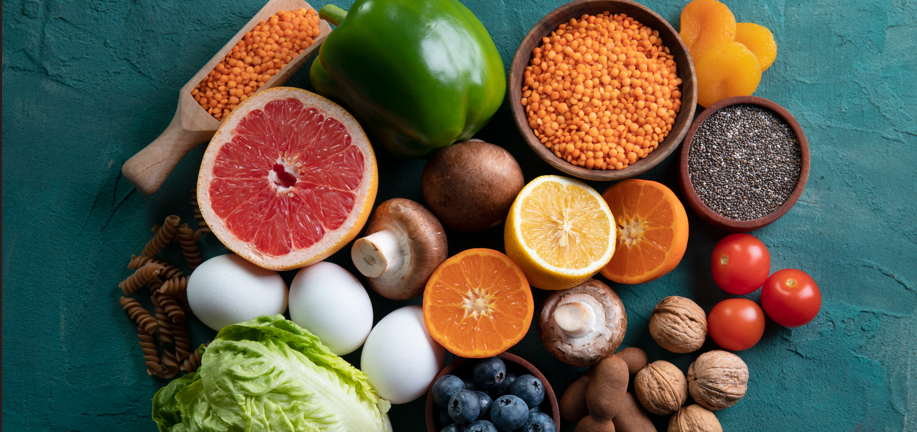Tendinitis, the inflammation of a tendon, often results from overuse, repetitive motions, or injury. While rest, physical therapy, and medications are commonly recommended for recovery, nutrition is an often-overlooked but essential aspect of healing. The right diet can help manage inflammation, repair damaged tissues, and enhance overall recovery. This article delves into the role of nutrition in tendinitis recovery and highlights specific foods and nutrients that support healing.
The Importance of Nutrition in Tendinitis Recovery:
-
Reducing Inflammation: Chronic inflammation can delay the healing process. Anti-inflammatory foods help manage and reduce inflammation, promoting quicker recovery.
-
Tissue Repair: Adequate intake of protein and other nutrients is vital for the repair and regeneration of damaged tendons.
-
Supporting Immune Function: A healthy diet boosts the immune system, which plays a critical role in healing and preventing further injury.
Key Nutrients for Tendinitis Recovery:
1. Omega-3 Fatty Acids
Omega-3 fatty acids have potent anti-inflammatory properties that can help reduce tendon inflammation.
-
Sources: Fatty fish (such as salmon, mackerel, and sardines), walnuts, and fish oil supplements.
-
Recommendation: Incorporate at least two servings of fatty fish per week or consider a high-quality omega-3 supplement.
2. Protein
Protein is essential for the repair and regeneration of tendon tissues.
-
Sources: Lean meats, poultry, fish, eggs, dairy products, legumes, nuts, and seeds.
-
Recommendation: Aim for a balanced intake of protein with each meal to support muscle and tendon repair.
3. Vitamin C
Vitamin C is crucial for collagen production, which is necessary for tendon health and repair.
-
Sources: Citrus fruits (oranges, grapefruits), strawberries, kiwi, bell peppers, broccoli, and Brussels sprouts.
-
Recommendation: Include a variety of vitamin C-rich foods in your daily diet to promote collagen synthesis.
4. Vitamin E
Vitamin E is a powerful antioxidant that helps reduce inflammation and supports immune function.
-
Sources: Nuts (almonds, sunflower seeds), spinach, avocado, and vegetable oils (such as sunflower and safflower oils).
-
Recommendation: Add vitamin E-rich foods to your diet to help combat oxidative stress and inflammation.
5. Zinc
Zinc is essential for tissue repair and immune function.
-
Sources: Meat, shellfish, legumes, seeds, nuts, and dairy products.
-
Recommendation: Ensure an adequate intake of zinc through a balanced diet or consider a zinc supplement if necessary.
6. Curcumin
Curcumin, the active compound in turmeric, has strong anti-inflammatory and antioxidant effects.
-
Sources: Turmeric (often used in curry dishes), turmeric supplements.
-
Recommendation: Add turmeric to your meals or take a curcumin supplement to help reduce inflammation.
7. Bromelain
Bromelain, an enzyme found in pineapples, has anti-inflammatory properties that can aid in tendon healing.
-
Sources: Pineapples and pineapple juice.
-
Recommendation: Consume fresh pineapple or consider a bromelain supplement to support inflammation reduction.
Anti-Inflammatory Foods to Include:
1. Leafy Greens
Leafy greens such as spinach, kale, and Swiss chard are rich in antioxidants and vitamins that combat inflammation.
2. Berries
Berries like blueberries, strawberries, and raspberries are high in antioxidants that help reduce inflammation.
3. Nuts and Seeds
Almonds, walnuts, chia seeds, and flaxseeds are excellent sources of anti-inflammatory fats and nutrients.
4. Whole Grains
Whole grains such as oats, brown rice, and quinoa provide fiber and nutrients that support overall health and reduce inflammation.
5. Healthy Oils
Olive oil and avocado oil contain healthy fats that have anti-inflammatory properties.
Foods to Avoid:
Certain foods can exacerbate inflammation and should be limited or avoided during tendinitis recovery.
-
Processed Foods: High in unhealthy fats, sugars, and additives that promote inflammation.
-
Refined Carbohydrates: White bread, pastries, and other refined grains can increase inflammation.
-
Sugary Foods and Beverages: Excessive sugar intake can lead to increased inflammation.
-
Saturated and Trans Fats: Found in fried foods, fast food, and certain baked goods.
Nutrition plays a vital role in tendinitis recovery, with certain foods and nutrients offering significant anti-inflammatory and healing benefits. By incorporating a balanced diet rich in omega-3 fatty acids, protein, vitamins, and antioxidants, individuals can support tendon health, reduce inflammation, and promote quicker recovery. Alongside physical therapy and other treatments, a nutritious diet can significantly enhance the healing process and help prevent future occurrences of tendinitis.




